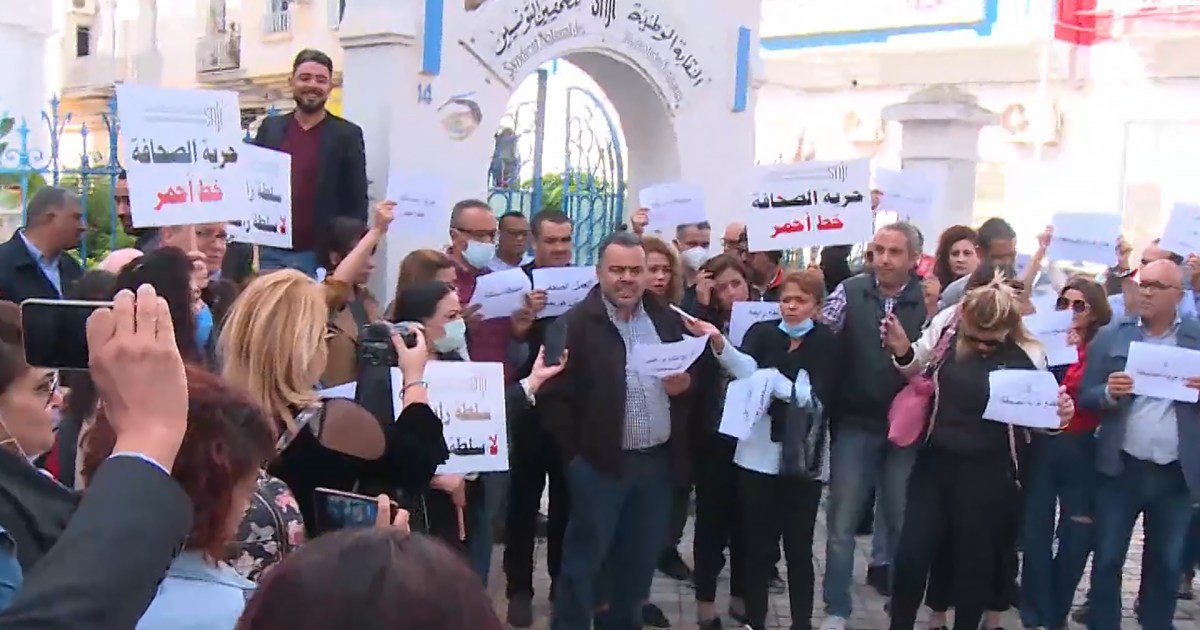An American legislator warned that Tunisian democracy is in danger. In parallel, Tunisian President Kais Saied expressed his dissatisfaction with the discussion of the Tunisian situation in Congress, while the Ennahda movement announced its refusal to violate the constitutional formulas and procedures in the government formation process.
Ted Deutch, chairman of the US House of Representatives Subcommittee on the Middle East, North Africa and Counterterrorism, said Tunisian democracy is in danger after President Kais Saied began imposing executive powers.
He added - during a hypothetical hearing - that a number of parliamentarians are still being held on political charges and without any indications of when Parliament will reopen and their release.
In turn, Republican Representative Greke Stobe reminded that the United States has provided significant development and security assistance to Tunisia without seeing the results of this support.
Stobe added that the Tunisian president is not a friend, and that he has been pushing an agenda against the United States and Israel since his election campaign.
Stobe said it was time to reconsider US aid to Tunisia.
Tunisian President Kais Saied had informed the US ambassador in Tunisia of his country's dissatisfaction with discussing the Tunisian situation in Congress.
Said said that relations with Washington will remain strong, although a number of Tunisians are trying to distort what is happening in the country.
Saeed added that the meeting with the US ambassador was an opportunity to clarify a number of issues spread by those he described as enemies of democracy.
Tunisia is facing pressure from its partners from the international community, including the United States, to return to the constitutional system, after President Said announced the exceptional measures about 3 months ago.
Al-Nahda rejects the government of Najla Bouden
In another development, the Tunisian Ennahda movement said that it refuses to violate the constitutional formulas and procedures in the process of forming the government, which it considered the de facto government.
The movement stressed - in a statement - that the loss of legitimacy will multiply the challenges and obstacles facing the government in its handling of national affairs and its dealings with international partners.
She was surprised by what she described as the continuation of the sharp discourse towards political violators, stressing that it is a discourse that divides the Tunisian people, fuels conflict and strife, undermines national unity and harms Tunisia's reputation.
She commended the popular, political and human rights movement that refuses to suspend the constitution and institutions and calls for an end to the exceptional situation.
Al-Nahda movement warned of the danger of continuing to pressure the judiciary, and demanded support for its independence and respect so that it can carry out its duties in protecting rights and freedoms and establishing justice.
press protests
In a related context, the National Syndicate of Tunisian Journalists organized today, Thursday, a vigil to denounce the repeated attacks against journalists.
The union said that it had monitored a number of serious attacks, which it described as targeting journalists from various media institutions, especially those who covered the protests that followed the procedures of last July 25.
The protesters raised slogans such as "Freedom of the press is a red line" and "A fourth authority, not a kneeling authority."
The head of the Journalists Syndicate, Muhammad Yassin Al-Jelassi, said that the stand was in the context of expressing their anger at the repeated barbaric and brutal attacks on them.
He pointed out that these attacks almost claimed the lives of the Tunisian national television crew last Sunday.
Al-Jelassi called on his country's authorities to assume their responsibility to protect journalists while they perform their duties, stressing that assault with violence, intimidation and incitement are crimes whose perpetrators must be held accountable.
He considered that impunity encouraged the continuation and repetition of attacks against journalists, noting that the union had already begun to prosecute the aggressors.
Al-Jalassi warned of the danger of the escalation of incitement against journalists, and the prosecutions against them for their opinions, positions or journalistic work, or because of the orientations of the media institutions operating them.
Moody's downgrades Tunisia's sovereign rating
On the other hand, Moody's rating agency, on Thursday, downgraded Tunisia's sovereign rating from B3 to CAA1 with a negative outlook.
Moody's said in a report, that the downgrade to "CAA1" reflects weak governance and increased uncertainty regarding the government's ability to implement measures that would ensure renewed access to financing, to meet the high needs over the next few years.
This is the tenth time that Tunisia's sovereign rating has been downgraded by international rating agencies, since 2011.
Moody's warned that Tunisia would default on its debt if significant financing was not secured.
The agency stated that the negative outlook for Tunisia's credit position reflects downside risks related to possible prolonged delays in reforms and reform-dependent financing, which would lead to the erosion of foreign currency reserves.
Since last July 25, Tunisia has been experiencing a severe political crisis, when President Saied began a series of exceptional decisions, including freezing the competencies of Parliament, lifting the immunity of its deputies, abolishing the constitutionality monitoring body, issuing legislation by presidential decrees, chairing the Public Prosecution, and dismissing the Prime Minister.
The majority of political forces rejected these decisions and considered them a coup against the constitution, while other forces supported them and saw them as a correction of the course of the 2011 revolution, in light of the political, economic and health crises (the Corona pandemic).
And last Monday, the formation of the new Tunisian government, which included 24 ministerial portfolios, was announced, headed by Najla Bouden, who was appointed by Said to the position on September 29 last.

